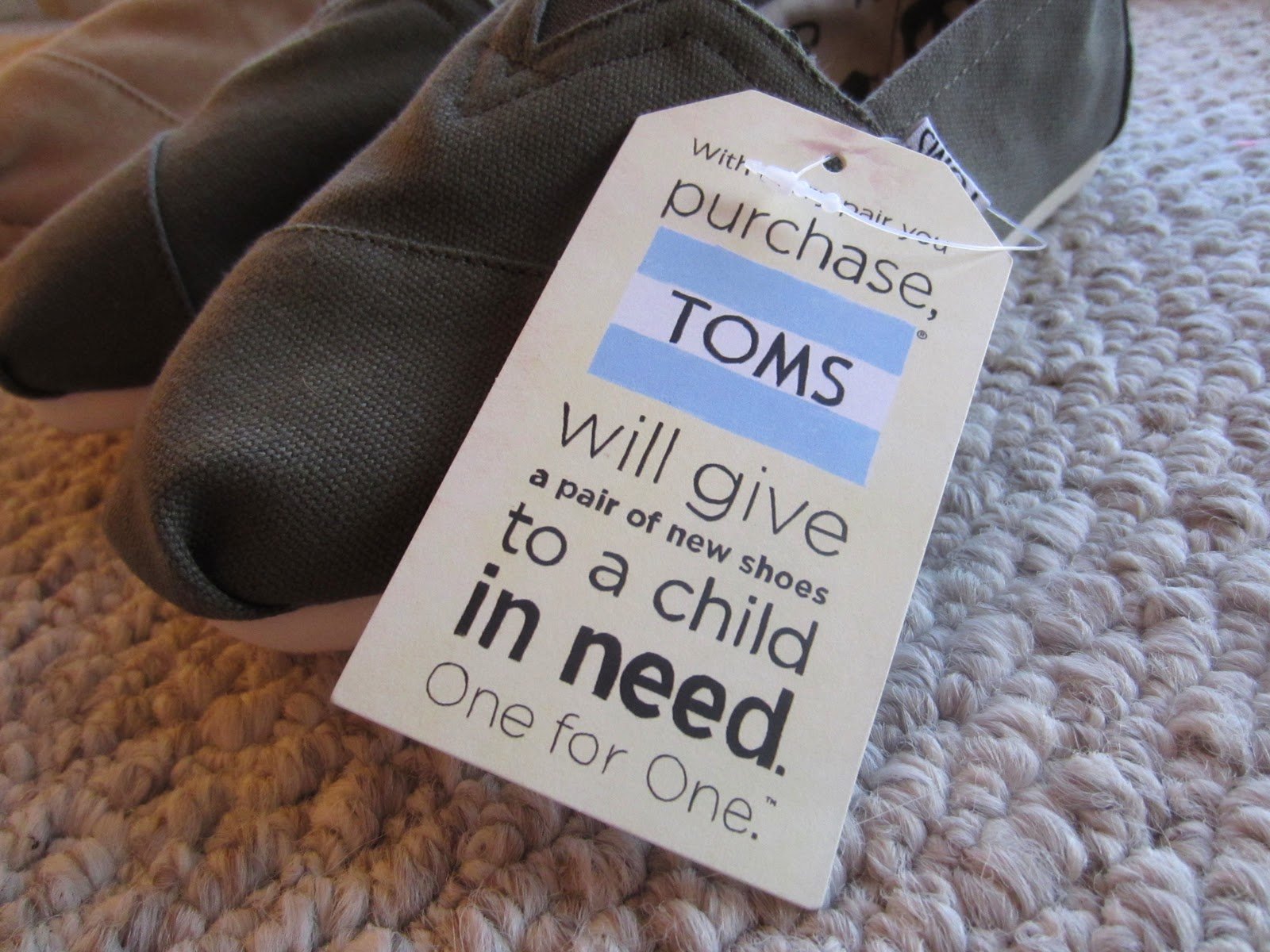
In 2006 TOMS was founded by Blake Mycoskie, named after the company's original intended name, Tomorrow Shoes. Blake had vast experience establishing companies and stumbled upon the shoe industry after spending time in Argentina, falling in love with a traditional local shoe called Alpargata and discovering a need for shoes in impoverished villages. This experience sparked his idea to bring the Alpargata shoe design to the USA and create a "for-profit" company committed to donating one pair of shoes for every pair sold.
One for One
After becoming the first company to introduce a one-for-one donation model to the market successfully, TOMS managed to make a modernized version of the traditional Argentinian alpargata a worldwide phenomenon. They established themselves as an inaugural icon of social marketing. But their model and product were quickly copied and questioned by their competition, the public, and the media, which forced them to adapt. The first step was making their program more effective by giving the shoes away as a reward for kids doing good in school; they also expanded their product line, including sunglasses tight up to cataract surgery donations, and they even when as far as donating one dollar for every three they make.

TOMS is a fascinating example of woke branding because it was founded in a world where this kind of approach to connect with customers had not hit the market jet. Now, the company is struggling to compete in an environment where social branding is quickly becoming the norm.
Back in 2006, TOMS took over the world with its now iconic product and business model, offering a new way of charitable consumerism that was incredibly well received by young people and even international celebrities.
Their innovative model allowed them to generate 250 million dollars in sales in 2013 alone from 60-dollar alpargatas and donate more than 10 million shoes distributed by their sister non-profit, "Friend of TOMS."
A bit of context
Economical impact
TOMS has managed to increase there impact throughout the years, tweaking its original model and adapting to world change. Even though the brand is not the sales and marketing giant it once was, the positive impact they manage to have kept on growing, awarding them a position in the top 5% of B Corps.

TOMS has endured many changes to try and stay competitive in a modern market; Blake Mycoskie no longer runs the company after being taken over by its creditors in 2019. The original model has been transformed from one-for-one to a more extensive and complete 1/3 of the profit donation model to grassroots good in diverse communities. The product line has expanded way beyond the original alpargata into multiple kinds of shoes and sunglasses.
About TOMS

Reception
Positive
At launch, TOMS exploded almost immediately; people seemed excited to see an alternative to traditional corporate brands that presented a new vision of consumerism tied with altruism. The one-for-one model took TOMS straight to the top, with celebrities worldwide wearing the brand and their alpargata design becoming an almost instant icon.
Negative
Due to countless copies of TOMS' original idea offering cheaper alternatives, some of them offering even more social support for each purchase, the public started questioning the brand, and it became evident that their model had much to improve. The impact of the new apparatus on the communities being helped was deeply questioned, and the product's design became a fad.
Comunicate efectively
An essential part of TOMS’ initial success relied on the simplicity of their model, allowing people to connect instantly and their ideas to spread rapidly.
Evolve
TOMS “for profit” has been forced to evolve into something seemingly completely different from how it began, but the company has kept the main driver behind the Brand, a will to help the ones who most need it.
Collaborate
The best path to making a difference is admitting your limitations and allowing others to help you. Understand what you excel at and find others to help you make the most of it.
Self evaluate
There is nothing wrong with accepting that you could be doing things better; in fact, few things show more commitment than the will to grow from your mistakes.
Keep trying
Rome wasn’t built in a day, and change won’t be, either. If you're not achieving the impact that you set yourself to, keep trying.
Don’t forget the product.
A Brand is not only intentions; you must keep your product presentation. Woke branding might interest the public, but product experience will keep them returning.






